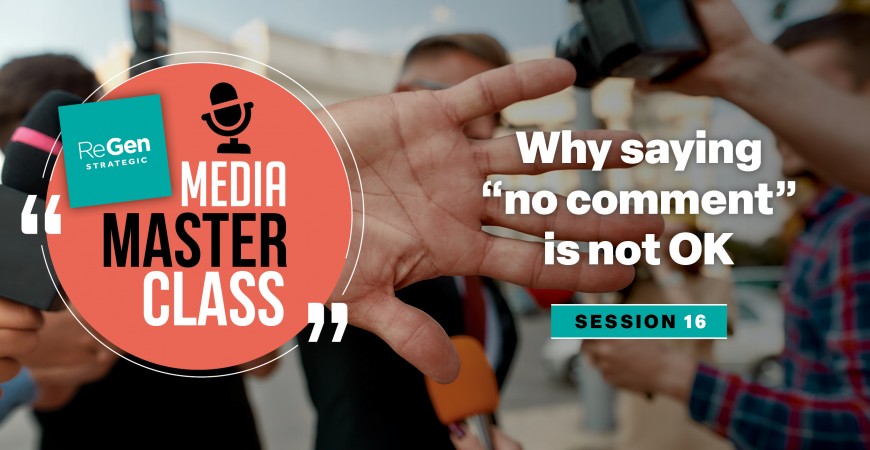If your company finds itself in a situation where the media is calling about something you don’t want to talk about, your first instinct might be to ignore the calls and hope it goes away.
But there are very few instances where saying “no comment” is going to improve your situation, and you might end up doing irreparable damage to your reputation instead.
Here’s five reasons why “no comment” is not OK:
- You’ll look like you have something to hide. In these times of increased transparency, where we have multiple platforms to communicate through and companies are expected to be accountable, saying “no comment”, particularly when your company has been accused of something, can make it seem like you have something to hide. Afterall, if there’s a reasonable explanation, why wouldn’t you take the opportunity to give your side of the story?
- Everything will be assumed to be true. If a spokesperson for your company doesn’t come forward and you hide behind “no comment”, journalists and their audiences will assume everything in the story, and that others are saying about you, are true. It will be assumed that if you haven’t taken the opportunity to dispute what’s being alleged, then it must be factual.
- You should speak for yourself. If you don’t, others will speak for you. In our experience, your company is always best placed to explain a situation and put your side of the story across in your own words rather than having someone else who is generally less qualified to talk about the situation. There is also less room for error if you speak for yourself.
- Media will get information from somewhere else. If media can’t get a story straight from the horse’s mouth, they will get their information from less credible sources and have to rely on hearsay. This means they will more than likely get their information from places you’d rather they didn’t, which rarely works out positively for your company.
- You’re likely to drag out the story. Issuing a “no comment” will just encourage the media to harass you for longer and drag out the story, during which time all of the above could happen and your company’s name gets dragged through the mud. In general, if you front up at the start and tell your side the media will be satisfied and move on to something else more quickly.
At ReGen, unless there are potential legal implications, we generally advise our media relations clients they are better off saying something rather than nothing. In our Cutting Through media training sessions, we give advice on what you can say instead of “no comment”.
 ReGen Strategic
ReGen Strategic